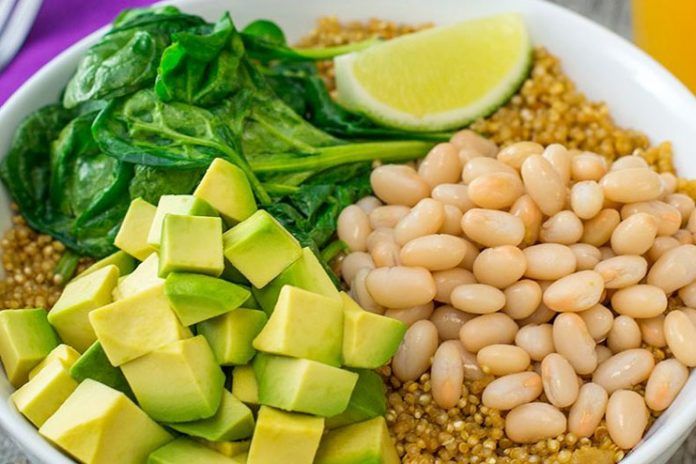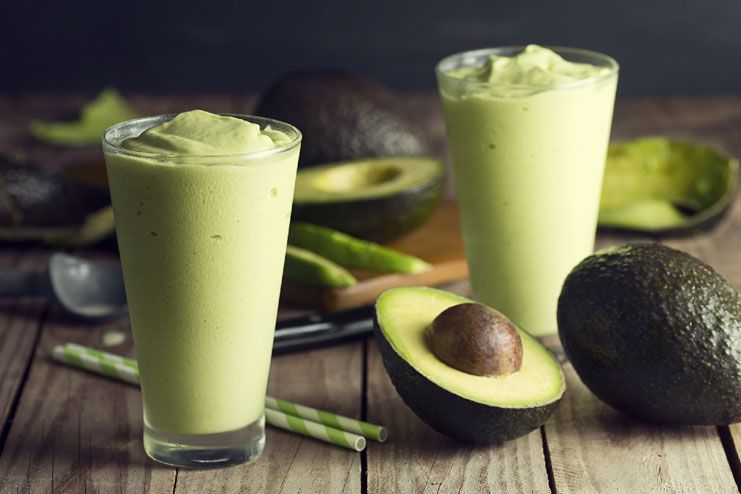Affiliate Disclaimer
Some links in this article are affiliate links. We may earn a small commission if you make a purchase through these links, at no extra cost to you. We only recommend products we find useful to our readersAvocados are known for their nutrition facts and good benefits for health. They contain many vital nutrients that the body needs. Avocados include 20 vital nutrients, including fiber potassium, vitamin E, B-vitamins and folic acid. They also act as nutrient-booster by absorbing fat-soluble nutrients such as alfa, beta carotene and lutein in foods generally eaten with fruit. There are many Avocado Nutrition Facts that one must know.
Here are some of those avocado nutrition facts that can help you to learn about why avocados are important for good health:
Serving per avocado
A serving is generally 1\3 of avocado , that is equal to 50 gms i.e there are three servings in a medium avocado. So you can check the labels of avocado you buy with the help of this measurement.
One cup (4.6servings, 230 g) of pureed avocado contains:
-
- 368 Calories
-
- 4.6 g of Protein
-
- 19.62 g of Carbohydrates
-
- 1166 mg of Potassium
-
- 23.0 mg of Vitamin C
-
- 175 mg of Beta-sitosterol
- 0 mg Cholesterol
The information above is based on the USDA National Nutrient Database for Standard Reference.
Checking calories for energy that avocados supply
According to FDA, calories provide how much energy you get from a serving of avocado.
Taking 40 calories is low, 100calories is medium and 400 calories or more is high. In general, 50 g of avocado has 80 calories and contributes to nearly 20 vital nutrients and minerals making it a vital nutrition choice.
Help yourself limit or increase nutrient content in food
According to FDA eating too much trans fat, saturated fat or sodium may increase the risk of chronic diseases relating to heart, cancer related issues or high blood pressure. So before consuming anything, watch for nutrients so that you limit your intake of saturated fat, trans fat and sodium content so that you have a nutritionally balanced diet. Eating avocados can help to reduce the intake of such unhealthy fats.
Avocados are a good substitution for a diet that contains more saturated fat and added sugars.
Avocados can be a good substitute to bad fats and a door to good fats and good eating since they are rich in mono saturated and poly saturated fat. Avocados are highly dense in nutrients too. In particular for American cuisine, where foods are poor in fiber, avocados provide enough fiber. As a vegan or vegetarian, this fruit helps in place of dairy products. You can add fresh pieces of avocados in every meal or dish.
About the sizes of avocados
Avocados differ in sizes. They are generally small, medium and large. Due to the variation in sizes it is difficult to say how many calories an avocado contains. The calorie chart may not be the same for all avocados. But remember that one serving of avocado equals 1/3 of an avocado. If you are starting with a medium sized avocado, you are having 3 servings. So we can say half a medium sized avocado has 1.5 servings which equals 130 calories.
Avocados nutrient booster
Avocados contain alpha and beta carotine that is important for forming vitamin A in the body which is important for proper growth and reproduction and eye sight. This vitamin A is important in immune, visual and cellular functions. It also maintains the heart, lungs, kidneys and other organs.
Some Avocado Nutrition Facts You Never Know:
Fiber in avocados
Dietary fiber is generally present in plant sources and is useful in laxation. It might reduce the risk of cardiovascular diseases, obesity and type 2 diabetes. Consuming avocados as part of your dish helps both children and adults to increase the intake of nutrients, and ensures healthy gastrointestinal functions.
Good in folate or folic acid
Folic acid helps to produce new cells and also maintain them. This is actually important during rapid cell division, infancy and pregnancy. This folic acid actually is required to make DNA and RNA which build cells. Both adults and children need folate to build red blood cells and prevent anemia.
Contain salts such as iron potassium and magnesium
Iron carries oxygen throughout the body and helps to produce energy. Whenever iron levels are low in the body, one becomes fatigued and weak and cannot tolerate extreme temperature conditions. Magnesium helps in the contraction and relaxation of muscles. It helps in the production and transportation of energy. Dietary potassium can help to lower the blood pressure and thereby reduce the ill effects of sodium on health. It also reduces kidney stones and fights against decreased bone loss.
Rich in vitamins B3, B2, B5 and B6
Avocados are rich in vitamins B3, B2, B5, B6. Niacin, also called as vitamin B3, helps in the digestive system, skin and the nervous system. It also helps in converting food into energy. Riboflavin or B2 works with other B vitamins. It is important for body growth and red blood cell production or hormones and cholesterol. Pyridoxine or vitamin B6 helps the body to make antibodies that are needed to fight diseases. They also maintain normal nerve function, make haemoglobin for red blood cells to carry oxygen to the tissues, break down protein and keep blood sugar levels at normalcy.
Contains Vitamins K,B1,E and C
Thiamin or Vitamin B1 helps body cells to convert carbs into energy. Also, it is useful in the functioning of the heart, muscles and nervous system. The body needs vitamin E to fight any bacteria entering into the body. Vitamin E helps to widen blood vessels and keeps blood from clotting. Vitamin E is used by cells to carry out important functions. Vitamin C is helpful for skin bones and connective tissues. It helps in healing and helps the body in the absorption of iron. Vitamin K helps in making protein for healthy bones and tissues. Take avocados so that you do not have to bleed as this vitamin helps in blood clotting.
Hence the above avocado nutrition facts now form a nutrition guide and also tell you about the importance of avocados in your diet as they have more than 20 vital supply of nutrients that keep us at good health. They are also good when it comes to heart and diabetic health.
By Pradeepa Polineni




















